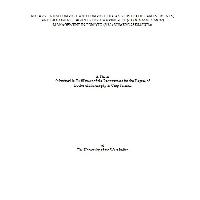Resumen
-
The use of costly imported peat (Sphagnum spp.)-based substrates, which are conducive to
damping-off, limits the profitability of commercial vegetable enterprises in the Caribbean.
Damping-off, a non-host-specific soil-borne disease, can result in significant vegetable
seedling loss and yield reductions. The primary goal of this dissertation research was to assess
high-rate rotary drum technology as a means of producing mature banana leaves (Musa
acuminata Colla) and lawn clippings [Axonopus compressus (Swartz) Beauv.] composts of
consistent quality, for use as soil-less growth substrates, which are suppressive to damping-off
(Pythium ultimum) in tomato (Solanum lycopersicum). The use of compost tea as a nutrient
amendment and biocontrol agent against damping-off of tomato cultivated in compost-
amended peat-based substrate, which is inoculated with the endomycorrhizal fungi Glomus
intraradices, were also investigated.
Stable composts, which were produced within 19 d using rotary barrel composters,
had significantly higher P. ultimum suppression efficacy than the commercial fungicide
UltraFlourish® (Nufarm Americas Inc., Illinois, USA), consistent quality across production
batches, and were suitable for use as components of plant growth substrates. Across compost
types, bacterial population was positively related to growth inhibition of P. ultimum whereas
total microbial population had a positive relationship with growth inhibition in lawn clippings
compost. Composts were, however, phytotoxic and suitable as substrate components at an
inclusion rate of 20% (v/v) with peat-based substrate inoculated with G. intraradices.
In contrast, compost teas stimulated in vitro seed germination of tomato and compost
type significantly affected the suppressive efficacy of compost teas. Significantly higher
growth inhibition levels were achieved with lawn clippings compost teas (86%) compared to
banana leaves compost teas (36%). However, aerating compost tea did not consistently result
in higher growth inhibition levels across compost types. Neither did increasing brewing time beyond 18 h for aerated compost teas and 56 h for non-aerated compost teas. Yeast
populations of aerated compost teas were positively related to growth inhibition whereas
bacterial populations had a positive relationship with growth inhibition for non-aerated
compost teas.
Damping-off was suppressed 100% when aerated compost tea made from lawn
clippings compost and brewed for 36 h, was applied to non-autoclaved peat-based substrate
inoculated with G. intraradices. In contrast, non-aerated compost tea made from lawn
clippings compost and brewed for 168 h, suppressed the biocontrol capacity of non-autoclaved
peat-based substrate inoculated with G. intraradices and severe damping-off was observed in
all autoclaved substrates.
With the exception of leaf area, unfiltered compost tea + fertiliser supplied to non-
autoclaved peat-based substrates inoculated with G. intraradices, had no significant effect on
growth parameters measured. In contrast, within non-autoclaved peat-based substrate not
inoculated with G. intraradices, unfiltered compost tea + fertiliser resulted in significantly
higher tomato seedling growth than the fertiliser only treatment. G. intraradices did not
colonise tomato roots and network width to depth ratio was the most important root system
architecture trait affecting shoot growth. Network length distribution was more related to
nutrient uptake than root traits associated with substrate exploration, and both positive and
negative microbial priming effects were observed in nutrient amendment studies.
Research findings show that the compost teas produced, may be of greater practical
relevance to farmers as amendments and biocontrol agents against damping-off than compost.
